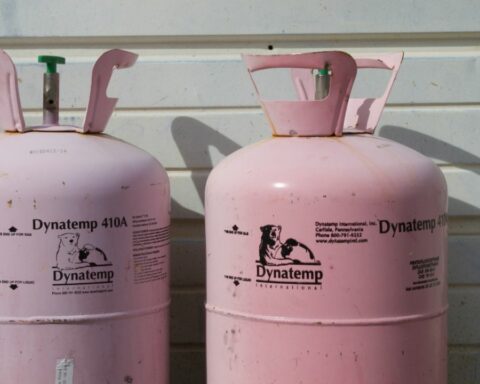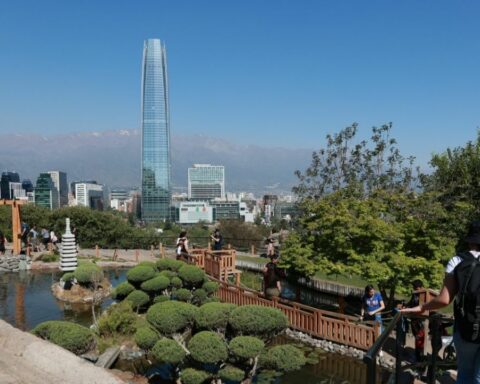Water is a central issue in the constitutional proposal that will be debated in the plebiscite on September 4. In the proposal, it is established that “the State must protect the waters, in all their states and phases, and their hydrological cycle” and that “water is essential for life and the exercise of human rights and Nature.”
In addition, that “the exercise of the human right to water, sanitation and the balance of ecosystems will always prevail; while other uses must be determined by law. Among them, the authorizations for the use of water that would replace the current rights Due to this, current owners of water rights have shown their concern, in case the constitutional proposal advances.
Through a diary insert Thirda group of water owners’ organizations that claim to represent “directly and indirectly, approximately 500,000 existing water users throughout our country”, among which various purposes such as human and industrial consumption stand out, they assure that have contributed “silently and almost 200 years ago to the aggrandizement and development of our country. The foregoing has only been possible through the joint effort of these users who, through the development and maintenance of hydraulic infrastructure and the technical and empirical knowledge obtained, have created the necessary conditions for efficient and effective administration and distribution”.
For this reason, they see that “despite the great efforts made by our organizations,” they are concerned about the content of the constitutional proposal because it will “severely impact the well-being and future development of thousands of Chilean men and women, by generating important changes in the use of water”.
“In effect -they add- a simple analysis of the draft Political Constitution of the Republic of Chile allows us to see the serious problems that users will face, both due to the elimination of ownership of the rights to use water, and the weakening of uses productive compared to other constitutionally prioritized uses. Thus, both the replacement of water use rights by use authorizations — precarious, non-transferable, for a single purpose and whose granting and maintenance will ultimately depend on the state official on duty — as well as the consecration, to constitutional level, of open discrimination to the detriment of the productive uses of water, will directly and equally affect small, medium and large water users, and indirectly the country as a whole, calling into question the legal certainty that currently characterizes our system.
“To the first, because on the one hand they will see their assets diminish without the right to any compensation, and on the other, because of the enormous difficulties that both the rigidity and politicization implicit in the new system will cause in obtaining the water resource. Free use and disposition that is currently given to the waters in order to satisfy human consumption, to produce food and other basic services for citizens in general, will be strongly harmed by not having a right that allows them to manage it and be efficient in their use. Lastly, they will be seriously affected in relation to the financing of current and future projects. The country in general will be strongly affected by the economic impact that these circumstances are expected to have on the production of goods and services destined for consumption in our country. country”, they add at this point.
Later, the signatory organizations criticize the transitory dispositions recently approved in the plenary session of the Constitutional Convention. “Through these, the constitutional ones, ignoring the opinions and advice of experts in the matter and exhibiting a great technical ignorance regarding how water management operates in reality, have proposed to the country a chaotic transition regime, the which, on the one hand, grants immediate application to the change in the legal regime of the waters, and on the other, delegates to a future Congress the determination of the conditions in which said change will finally materialize, without weighing the impacts and problems that, in the meantime, , will occur in the real world. Needless to say, if the constitutional proposal is approved, the vast majority of the legal reforms that, in terms of water, have been in force since April 2022, when it was approved, will become inapplicable. published the New Water Code These reforms, the result of a transversal political agreement that took more than a decade to reach, correctly address relevant issues and felt by the community, such as the prioritization of human consumption and domestic subsistence uses, hoarding and speculation, the recognition of ancestral indigenous property and the uses of environmental conservation and sustainability of water use rights, among others. others,” they say.
Finally, they make “a call to vote on September 4, taking into consideration the effects that an eventual approval of the proposed text will produce in our country. Throughout our history, we have known how to respect and care for our institutions and traditions, which has allowed, among other things, to make efficient use of water for human consumption, to produce food and other services for each of the Chilean men and women”.
The organizations signing the insert are: Confederation of Canalists of Chile, Elqui River Surveillance Board, Recoleta Reservoir Canalists Association, Hurtado River Surveillance Board, Aconcagua River Surveillance Board 1st Section, Aconcagua River Surveillance Board 2nd Section, Aconcagua River Surveillance Board 3rd Section, Las Mercedes Canal Association, Mallarauco Canal Association, Pirque Canal Association, Huidobro Canal Association, Maipo Canal Association, United Buin Canal Association, Canal Association La Isla – Lonquén, El Paico Channel Canalists Association, Federation of Surveillance Boards of the VI Region, Maule River Surveillance Board, Longaví River Surveillance Board, Ñuble River Surveillance Board, Itata River Surveillance Board, in formation Surveillance Board of the Diguillin River and its Sources, Surveillance Board of the Biobío River, and Surveillance Board of the Cautín River.








